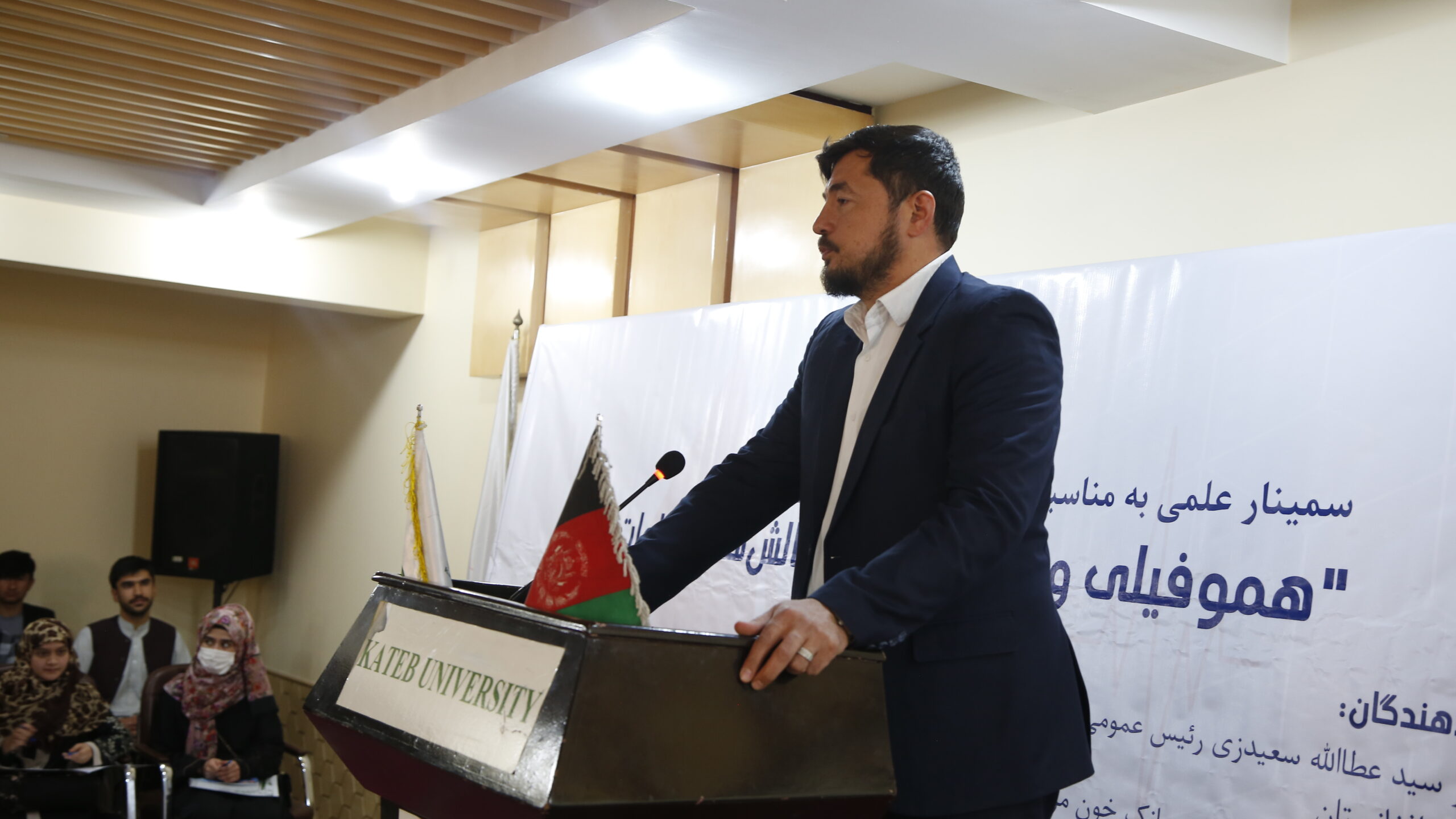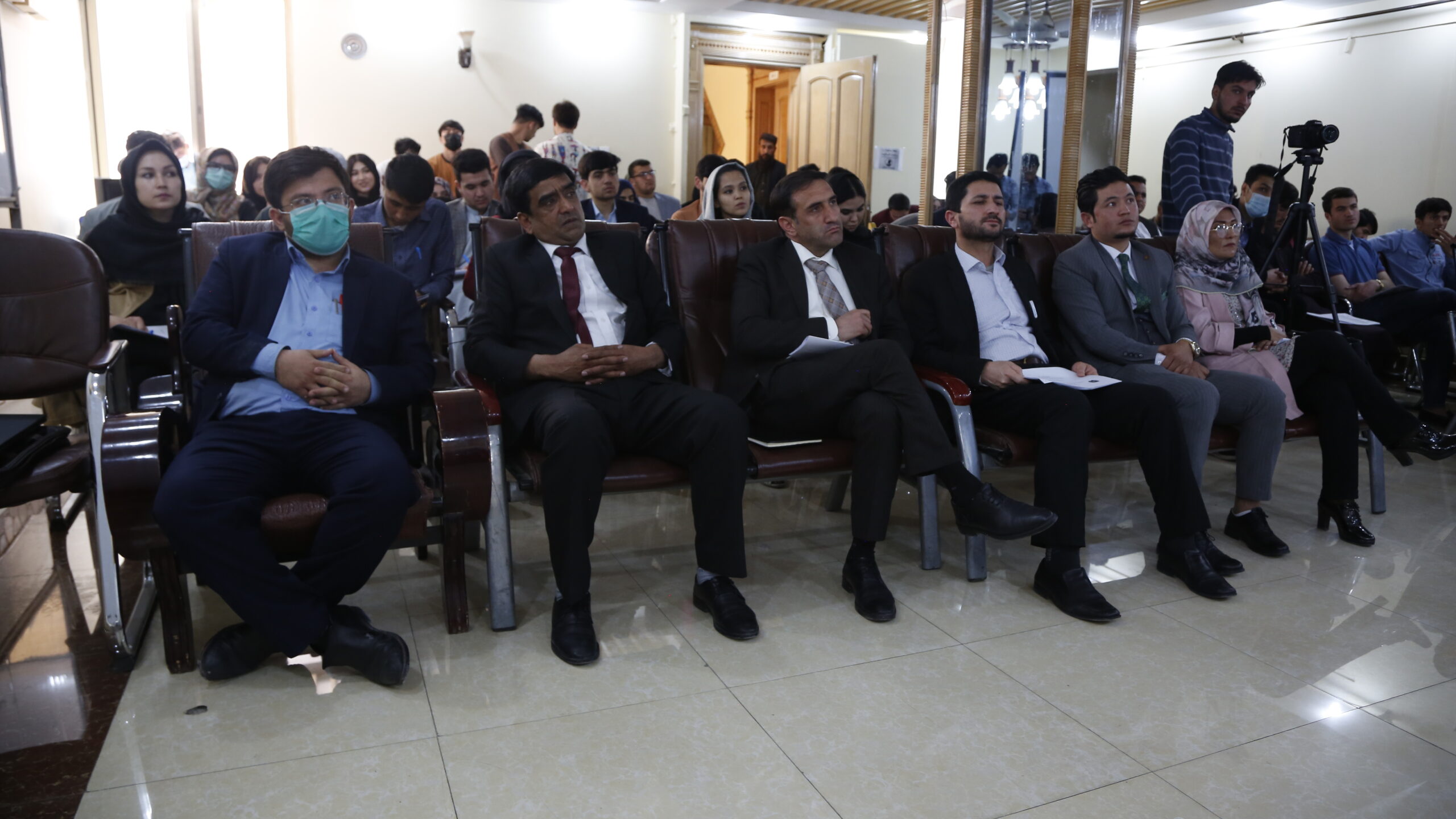Celebrating World Hemophilia Day, a seminar entitled “Hemophilia and Blood Diseases; Challenges and Measurements” was held by the Medical Research Center of Kateb University in collaboration with the Medicine Faculty of Kateb University on Saturday, April 17, 2021, from 11:00 a.m. to 1:00 p.m. in the meeting hall of Master’s Branch. The seminar was attended by speakers from government agencies and health NGOs.
In this seminar, Dr. Sayed Hamid Mousavi, Head of Kateb Research Center, began his speech about the challenges patients with hemophilia and other blood diseases face. He said that various challenges such as lack of specialized personnel, specialized health centers in the center and provinces, appropriate health services for these patients, lack of physiotherapy department, lack of coagulation factors and lack of access to these factors in the provinces, lack of prophylactic treatment are faced by these patients.
Then, Dr. Shoaib Shaban, President of the Daricha E Sehat Association, Dr. Zikrullah Faqirzadeh, Chair of the Afghan Hemophilia Association, and Ms. Maryam Karimi, Cahir of the Afghanistan Children’s Foundation, as NGOs and associations supporting these patients, described some of their services and achievements to help these patients.
Ms. Maryam Karimi, who serves more than 200 patients with thalassemia and hemophilia in Balkh province, said that they have provided valuable services to patients in need, and all these services have been voluntary and free, which is one of the most important services of the Children Foundation. It has been like Deferral for children with thalassemia in northern Afghanistan. They said that they are fully prepared to provide services to thalassemia and hemophilia patients in other provinces as well.
Professor Ruhollah Roein, a pharmacologist and a lecturer at Kateb University, said that the shortage of medicine is the most important problem for these patients. Besides, these patients, especially in the provinces, always face a shortage of medicine and the ministry should provide better services in this area.
Dr. Sayed Hossein Mousavi, Senior Advisor at the Ministry of Public Health, made valuable remarks on the challenges posed by leishmaniasis, one of the most common blood diseases in Afghanistan.
Then, the scientific lectures of the seminar of Dr. Enayatullah Hashemi, the head of the Central Blood Bank, gave a detailed explanation about the valuable achievements of this institution in the short time that they took over the hemophilia department. He said that to date, 498 hemophilia patients, most of whom are hemophilia A, have been registered in the Central Blood Bank. Also, a diagnostic and factor leveling unit has recently been set up in the Central Blood Bank, and all hemophilia patients in this ward are hemophiliacs. He also said that 126 hemophilia patients had recently been diagnosed in the hemophilia diagnostic laboratory and that one of the important achievements of the Central Blood Bank was the provision of continuous and sufficient coagulation factors, including factors eight, nine, and thirteen, as well as activating the hemophilia department in Herat province and providing services to 56 hemophilia patients in this province.
Dr. Sayed Atallah Saedzai, Director General of Evaluation and Health Information Supervision, gave detailed explanations about the results and general health information in Afghanistan and emphasized that universities should cooperate in conducting joint research with this institution.
Dr. Hossain Bayani Rad, a lecturer at the Department of Sociology and Director of Research Centers at Kateb University, made valuable remarks regarding the sociological importance of these patients.
Kateb University, as the most prestigious university in Afghanistan, is always trying to identify the existing challenges by holding scientific seminars in various scientific fields and provide a way out of this challenge.


Comment is not allowed